The events that led to 911 and how extremist ideologies continue to thrive today
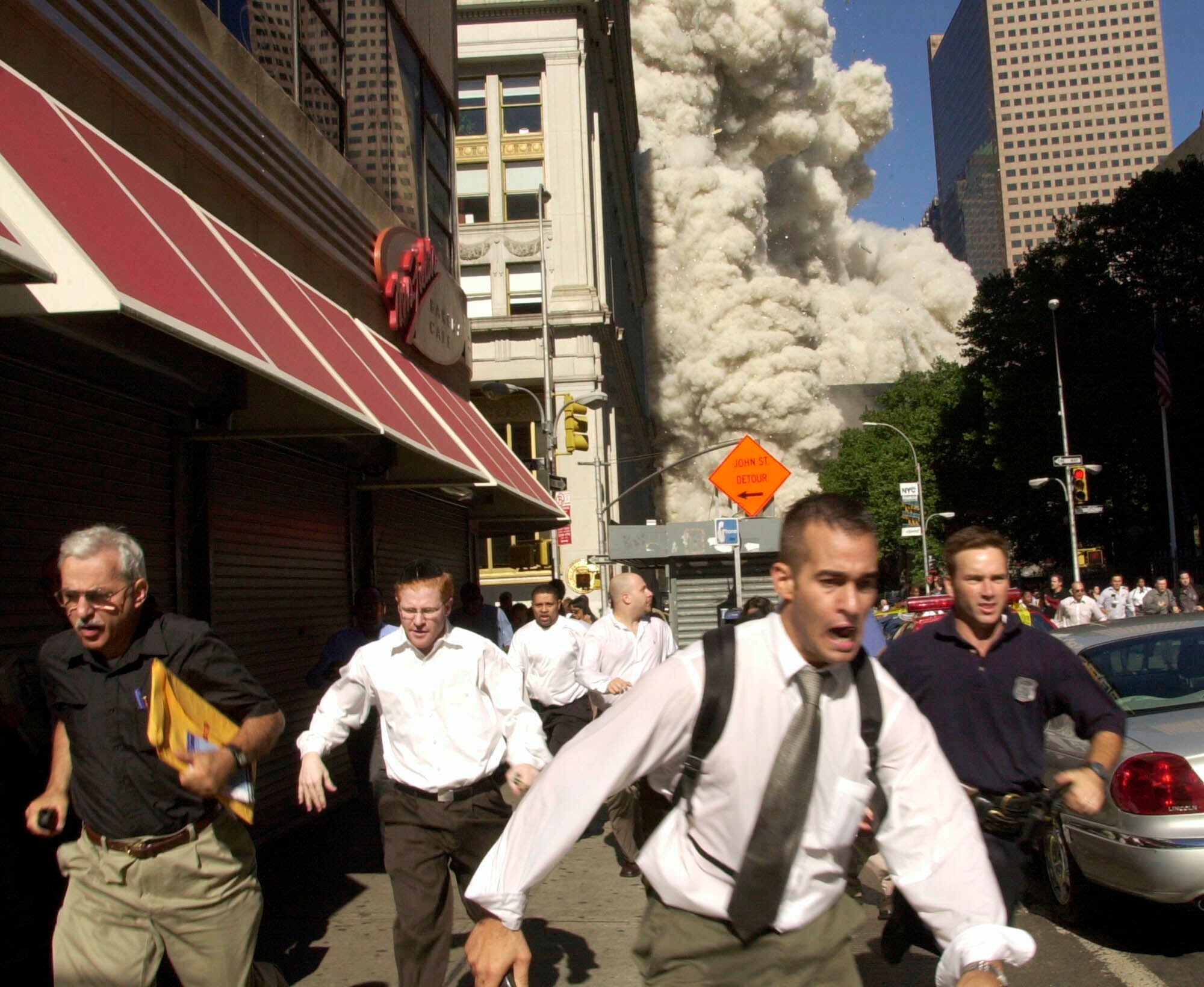

People run from the World Trade Center on 11 September 2001. Source: AP
Four planes were hijacked on 11 September 2001. The attacks were coordinated by al-Qaeda, which the UN Security Council lists as a terrorist organisation along with many countries including Australia.
Along with the two planes that hit the World Trade Center, one plane flew into the Pentagon and another crashed into a field in Pennsylvania when passengers overpowered the hijackers.
Then-US President George W. Bush addressed a frightened nation - and a watching world - that evening.
"Freedom itself was attacked this morning, by a faceless coward. Make no mistake, the United States will hunt down and punish those responsible for these cowardly acts," he said.
Osama Bin LadenWorldwide attention turned to the leader and financier of the group responsible; Osama Bin Laden. The Saudi fugitive had been threatening to harm the US for decades.
In 1998, he had declared a fatwa claiming the US had declared war against God and his messenger, and calling for the murder of Americans. In Bin Laden's words, the 'godlessness' of US society and culture was in opposition to his world view.
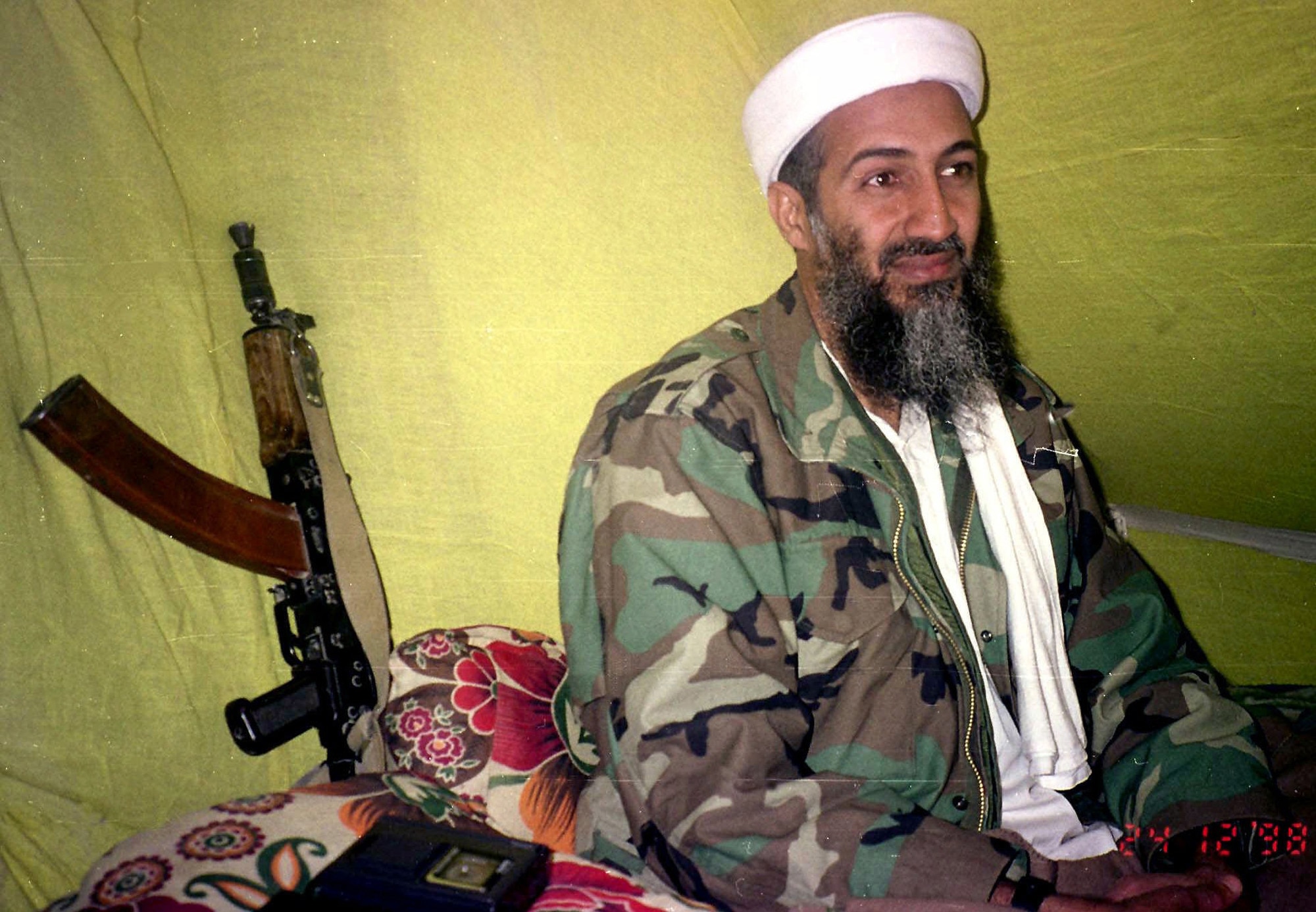

Osama Bin Laden in Afghanistan in 1998. Source: AP
Professor Admad Shboul is the former chair of the Department of Arabic and Islamic Studies at the University of Sydney.
When the 9/11 attacks took place, it was after midnight in Australia and he was listening to the BBC World Service from his transistor radio. The current affairs discussion was interrupted by an announcement that one of the towers had been hit by a plane and he immediately went downstairs to switch on the TV.
“I thought I was witnessing one of the worst days in contemporary history,†he told SBS News.
I thought I was witnessing one of the worst days in contemporary history.
- Professor Admad Shboul on 9/11“One of the things I did on that day at the University of Sydney, was to discuss the event with my students in class, instead of the prepared lecture. We discussed the possible ramifications. The mood was sombre.â€
“I still think that the attacks of September 11 2001 and the US-led invasion of Iraq in March 2003 have changed our world drastically for the worse.â€
Religious extremismProfessor Shboul said extremists see violence as necessary to defend their community, and al-Qaeda had a narrow-minded misinterpretation of the central religious text of Islam, the Qur'an.
“Unfortunately some commentators say 'you must go back to the Qur'an to understand this. I don't agree with that.
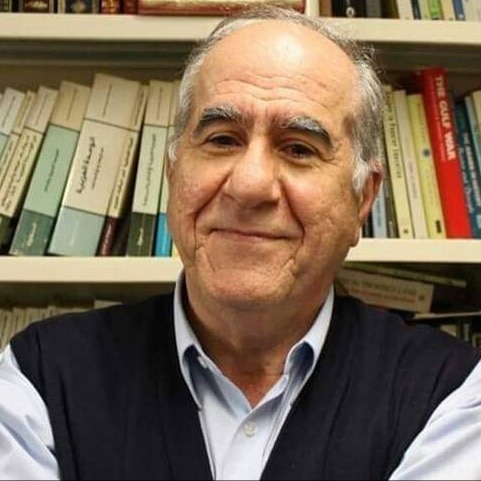

Professor Admad Shboul. Source: Ahmad Shboul
"The Qur'an, like the Bible, is full of all sorts of things. It depends what you pick out of it. The problem is, al-Qaeda and the people who taught Bin Laden about Islam pick up the verses that talk about jihad and misinterpret them."
Most Muslims would find their actions "abhorrent" he said.
"It's like the fundamentalists in Christianity, it's like the white supremacists and so on. It happens when you have an ideology that's misunderstood or a religion, or a civilisation, or cultural identity that becomes so narrow. And it could happen in any community, in any society."
Rebel forcesIn the years leading up to 9/11, the Taliban provided a safe haven for al-Qaeda in Afghanistan. While in power from 1996-2001, they offered al-Qaeda a base where it could freely recruit, train, and deploy militants to other countries.
They, and other rebel groups, had gained strength - with international help - during the 1979-1989 Soviet occupation of Afghanistan.
Saudi Arabia and the US supplied billions of dollars of secret assistance to rebel groups and warlords inside Afghanistan. When the Soviets were forced out, powerful armies were left behind.
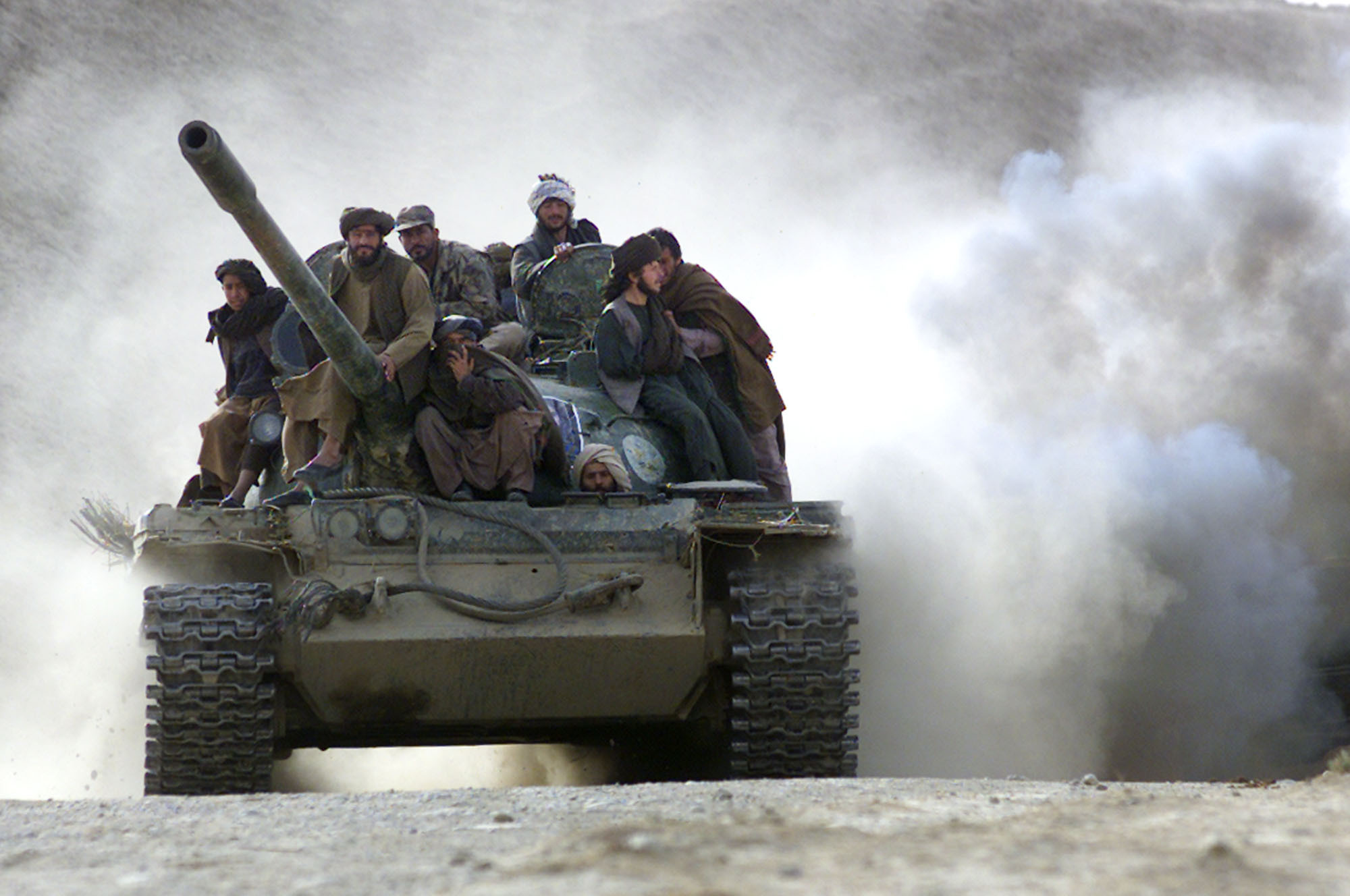

Defecting Taliban fighters in Afghanistan in 2001. Source: AP
"In 1989, you start getting the Soviet forces collapsing and then the Soviet forces withdrew. And you have all these thousands of fighters, what will they do?" Professor Shboul said.
“Because of their training in fighting the communists, they converted their use of arms, or their jihad, against the Americans and the West, and essentially against American values."
Read More


Various factions of mujahideen took control but quickly began to fight among themselves. The continued fighting gave rise to the Taliban movement.
Professor Shboul said al-Qaeda too formed a powerful organisational structure during this period, resulting in an intelligence component, military, financial and political committees. They have claimed responsibility for numerous attacks since the early 1990s, including the bombing of US embassies in East Africa.
US interventionBin Laden continued to assert that the US was the enemy because of its interventions in the Middle East.
"The jihadists and al-Qaeda then started to look at who the Americans were, what they were doing in Afghanistan and in Palestine by helping the Israelis. Destroying most of the infrastructure of Iraq in 1991, when they were trying to get Saddam Hussein's forces out of Kuwait," Professor Shboul said.
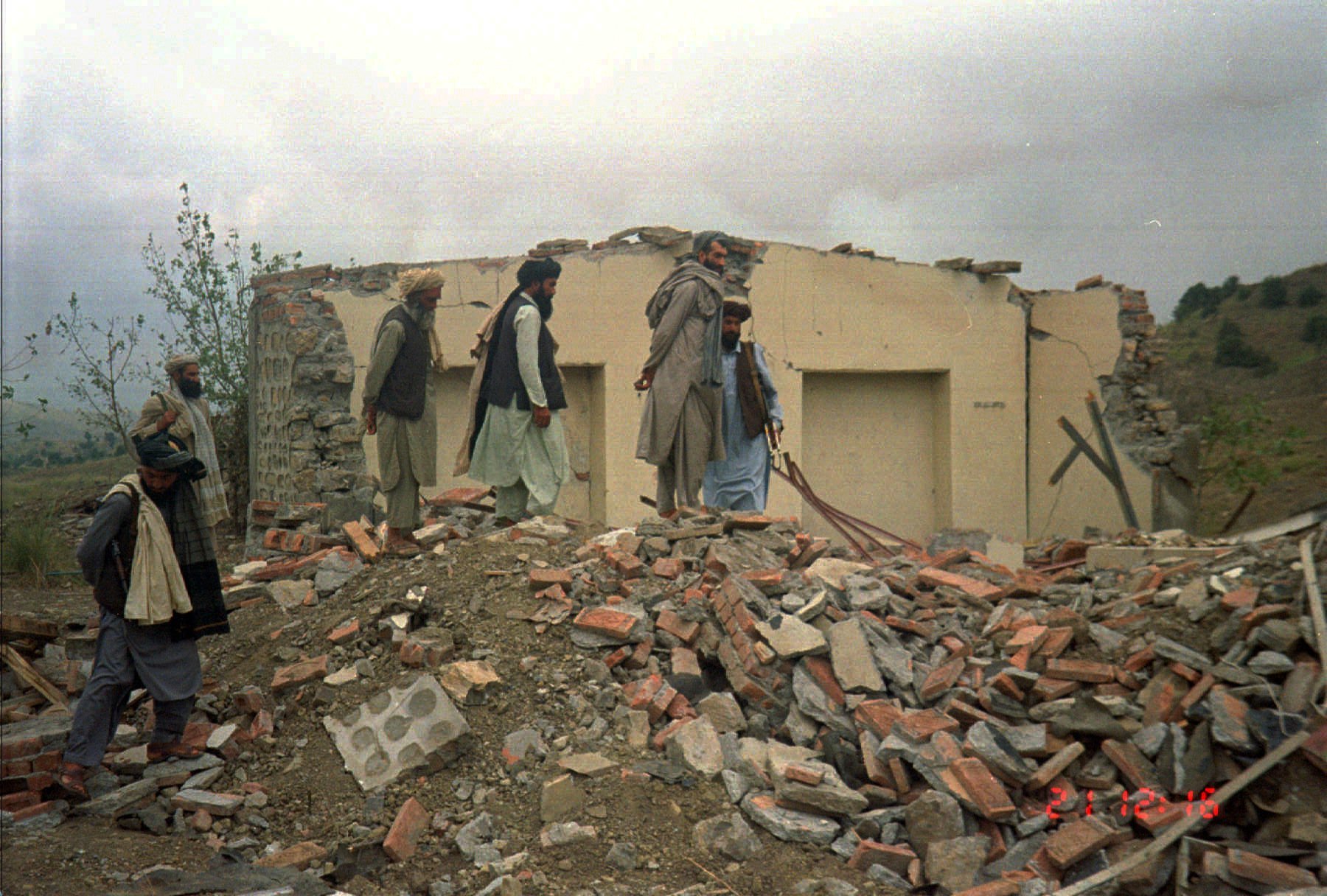

US forces fired several missiles on camps in Afghanistan run by Bin Laden. Source: AP
Dr Binoy Kampmark is a lecturer at the School of Global, Urban and Social Studies at RMIT University. He was also glued to the television screen after hearing the announcement of the 9/11 attacks on the radio.
Dr Kampmark said Bin Laden was angered by US support of Israel and sanctions against Iraq following the Gulf War.
“The US's record in the Middle East is one of extensive intervention, broadly speaking. We're talking about interference and the overthrow of regimes. We're talking about the overthrow of the Mossadeq regime in Iraq, we're talking about the imposition - along with the British intelligence services - of the Shah, overthrowing a regime there [in Iran] that had been elected."
Read More


Bin Laden also outlined his criticism of US troops in Saudi Arabia in his 1996 fatwa.
"In it, he points the finger squarely at the US and he talks about the occupation of land of the two holiest sites. And he wants the removal of bases, the US presence of bases in Saudi Arabia, which became his real bone of contention. That's the thing that stands out in the rambling of the 30-page fatwa."
Al-Qaeda's stated aim was to overthrow regimes failing to administer what it perceived as 'true' Islamic regimes, with targeted individuals including then-President of Egypt Hosni Mubarak and Saddam Hussein in Iraq.
"These individuals were regarded by al-Qaeda essentially as complicit with the United States because they suppress a certain brand of theocratic Islam. They are seen to be more secular," Dr Kampmark said.
The return of the Taliban20 years on, and Afghanistan is back in the same place as when the US entered in 2001.
Experts on the region fear the Taliban's regaining of control there will allow terrorist organisations to thrive.
Read More


Dr Kampmark said groups from all over the Middle East will want influence.
"Powers like the United States have caused disruption by funding other militia groups, warlords and so on. This instability that's going to be caused is also going to arise from these other militia groups that are also wanting influence and a slice of the pie."
The Taliban has said it will not allow foreign fighters to use Afghanistan as a base to attack other countries, but many doubt they can be trusted.

0 Response to "The events that led to 911 and how extremist ideologies continue to thrive today"
Post a Comment